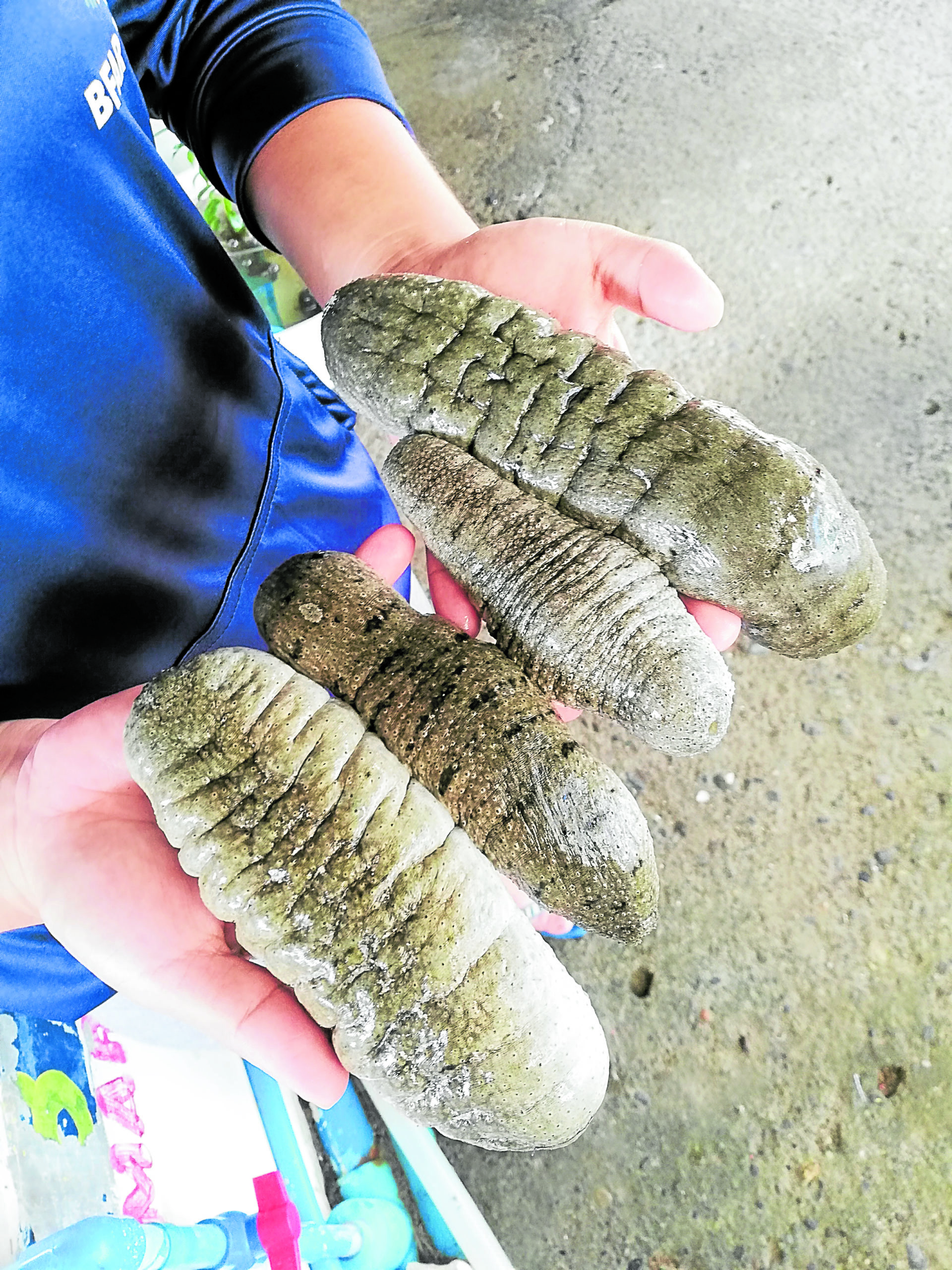BFAR bans harvesting, trading of 3 sea cucumber species

LAB GROWN Sea cucumbers are bred in a Bureau of Fisheries and Aquatic Resources center in Alaminos City. —CONTRIBUTED PHOTO
SAN FERNANDO CITY — Starting Aug. 28, catching and trading of three species of sea cucumber will be prohibited, the Bureau of Fisheries and Aquatic Resources (BFAR) said on Wednesday.
The species, which are collectively known as teatfish, are the Holothuria (Microthele) fuscogilva, Holothuria nobilis and Holothuria whitmaei.
Teatfish are slow-moving, benthic species living on tropical reefs, according to the Food and Agriculture Organization.
BFAR Director Eduardo Gongona said the three species were included in the Convention on International Trade in Endangered Species of Wild Fauna and Flora (Cites).
As an international agreement between governments, Cites aims to ensure that international trade in specimens of wild animals and plants does not threaten their survival, according to its website.
Article continues after this advertisementCites lists species that are not necessarily threatened with extinction but may become so unless trade is closely controlled.
Article continues after this advertisementBanned species
Gongona asked the BFAR regional directors to issue warnings against trading and exporting both live and dried forms of the three sea cucumber species.
He said the ban would include fishing, taking, catching, gathering, selling, purchasing, processing, transporting, exporting, forwarding or shipping out.
Other aquatic species included in the Cites list are mako sharks (Isurus oxyrinchus and Isurus paucus), guitarfishes (Glaucostegus spp) and wedgefishes (Rhinidae spp).
The BFAR’s regional mariculture technodemo center in Alaminos City is currently breeding and getting stocks of Holothuria scabra sea cucumber species from Anda and Bolinao towns in Pangasinan province and from Zambales province.
Precy Galilling, BFAR technical staff, said sea cucumbers harvested in the country were usually exported to China and Korea.
A kilo of dried sea cucumber can fetch between P3,000 and P8,000, depending on the quality of drying and the species, Galilling said.
Most countries in East and Southeast Asia consider sea cucumber as a delicacy. “It is also used for medicine as it is said to be antiarthritis, antifungal, antibacterial, antioxidant and antiaging because it is rich in collagen,” Galilling said.—YOLANDA SOTELO